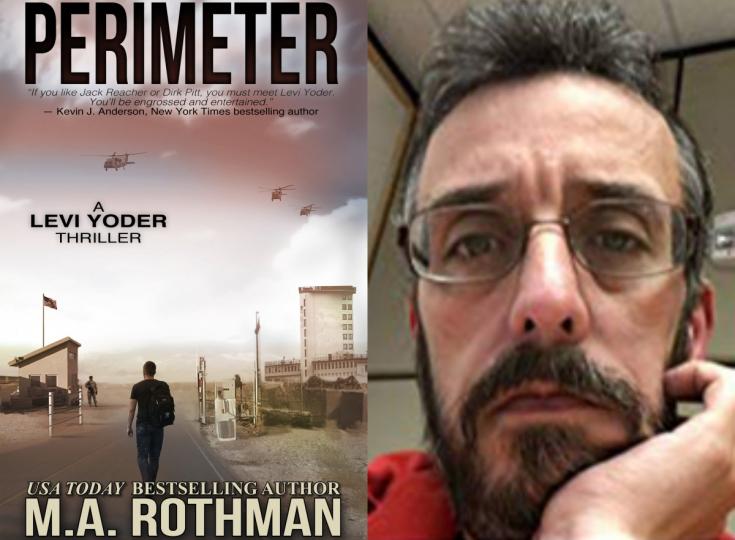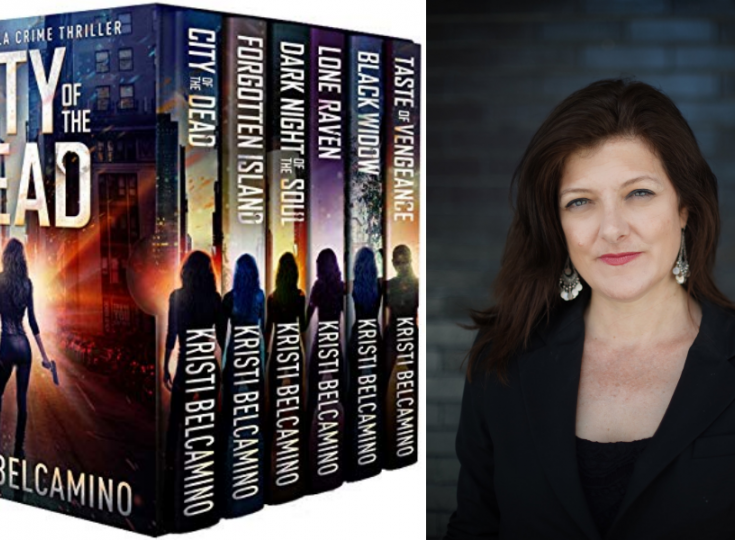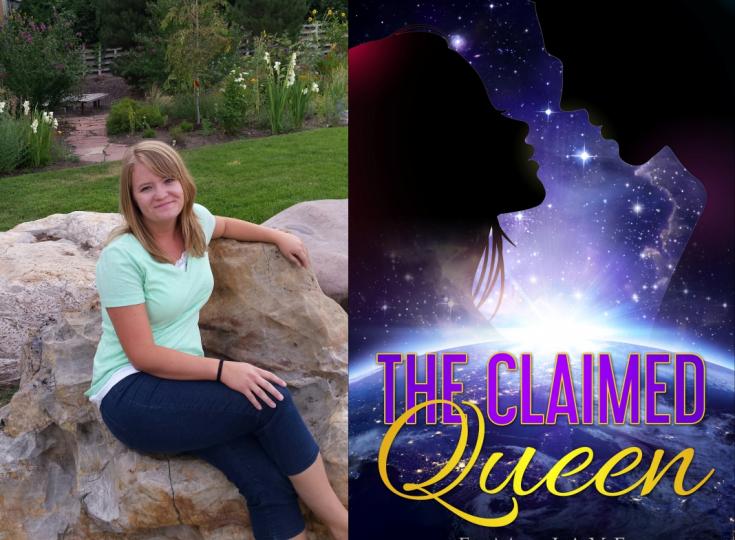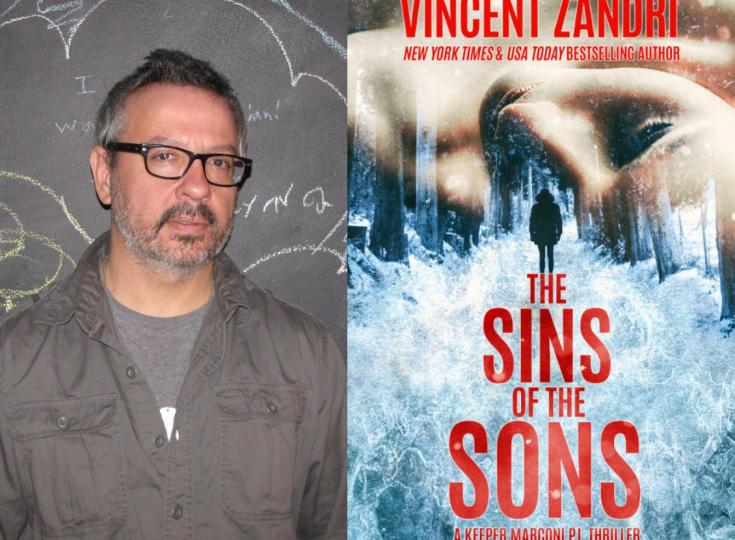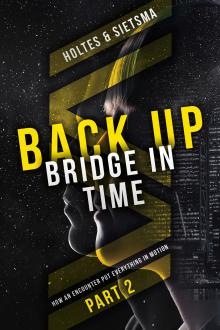Anna Stuart - Heart-Wrenching WW2 Historical Fiction
Anna Stuart wanted to be an author from the moment she could pick up a pen and was writing boarding-school novels by the age of nine. She made the early mistake of thinking she ought to get a ‘proper job’ and went into Factory Planning—a career that provided her with wonderful experiences, amazing friends, and even a fantastic husband, but didn’t offer much creative scope. When she stopped having children, she took the chance to start the ‘improper job’ of writing. It's not been easy, but she loves it and can't see herself ever stopping. Anna writes WWII fiction, focusing on some of the lesser-known aspects of this astonishing period and writing from a female perspective. "The Midwife of Auschwitz" has been her bestselling novel to date, but she is always looking to explore emotional tales of courage, strength, and overcoming terrible odds. As our Author of the Day, she tells us all about her book, The War Orphan, which is Book 1 in her Women of War series.
Please give us a short introduction to what The War Orphan is about.
The War Orphan is a fictional interpretation of the true story of a group of children who came out of the concentration camps without any discoverable family and were sent to the Lake District in England as part of a rehabilitation programme organised by a Jewish charitable group. It was a kind and generous attempt to set them on their feet again and give them a new life and for most of the children it worked wonderfully. The one thing it could not do, however, was to offer them real family and through Tasha, the fictional heroine, and Alice Goldberger, her real-life carer, I hope the novel explores the emotional impact of having to start again when all you really want to do is go back to how things were.
What inspired you to write the Women of War series, and how did you decide to focus on the experiences of children liberated from Auschwitz?
The series started when I discovered the real-life history of Stanisława Leszczyńska, an amazing Polish midwife who helped bring around 3000 babies into the Auschwitz concentration camp. Her story was so wonderful that I couldn’t believe no one had told it before so decided to do so myself, calling her Ana Kaminski for my fictional interpretation. That novel did very well and many readers were lovely enough to write to me saying they’d enjoyed it but really wanted to know what had happened to Pippa – a baby who is stolen from her mother in Auschwitz and sent into Germany for adoption as part of the Lebensborn programme. That led to me writing The Berlin Midwife following her story into 1961, the year the wall went up in Berlin.
Whilst researching both novels, I found out that a number of orphans from the camps had been sent to the Lake District after the war and that was what led me to Alice Goldberger – another amazing real-life woman – and the story of The War Orphan. In The Midwife of Auschwitz, I’d written about my two heroines liberating some children from a barrack after the Germans had abandoned Auschwitz and before the Russians arrived – based on a real story. For that, I’d created the very minor characters of Tasha and Georg, but that novel did not cover what happened to them so writing The War Orphan was a wonderful chance to follow their lives (fictional, but based on the true experiences of many children) and offer them a chance to rebuild them after the horrors of the camps.
The story is set in the immediate aftermath of World War II, a period filled with chaos and hope. How much research did it require from you to bring authenticity to Tasha's journey?
I did a lot of research for this novel, as for all my novels, but it’s no hardship as I love reading the history of this period (and more or less any period!). I usually start wide, reading all around the era and the country/countries the novel will be set in and then hone in on specifics as the story I’d like to tell starts to emerge from the mass of detail. I find all my ideas come out of my research. Fascinating golden nuggets of stories catch my eye and I follow them, filling out as much detail as I possibly can from books, witness accounts and any available records. I really hope my novels are the richer for having lots of true detail.
What was the most interesting aspect of your research?
I did quite a bit of research into the hundreds of thousands of people trying to get home from all over Europe after the war. It was not something I’d ever thought of before as in Britain, although there were hardships after the war and obviously a lot of loss to deal with, life went back to something like normal more quickly than in central Europe. I found it heartbreaking and it formed the basis for Lydia’s story (Tasha’s mother), which may seem far-fetched to some readers but is honestly based on truth.
Tasha Ancel's determination to find her mother is a central theme in the book. What does her search symbolize in the broader context of the story?
I feel that The War Orphan is a novel about home – about what constitutes a home and how you make a home again when it has all been taken away from you. It’s about loving people and wanting to be with them. It’s about family and belonging and how hard human beings will fight to find each other. I think that’s both very inspiring and, if it doesn’t work out, heartbreaking, and I hope that this novel explores that in a relatable way.
Besides writing, what other secret skills do you have?
‘Skills’ could be debatable, but I used to be a fairly serious level rower, I’m an enthusiastic karaoke-er, and I’m not so bad at beer pong…!!
Alice, the Jewish childcare worker, plays a significant role in the children's lives post-liberation. What inspired her character, and how does she influence Tasha's journey?
Alice Goldberger was a real person and a genuinely amazing one. Most of the detail in the novel is based on witness accounts about her and I was lucky enough to meet one of the orphans, still alive and living in London, who sang her praises very movingly. A childless woman, Alice dedicated herself to the care of orphans, both before the war in Berlin, during the war with Anna Freud’s Hampstead War Nurseries, and afterwards in the Lake District and Weir Courtney.
She stayed in touch with almost all of the Windermere children for years afterwards. Many of their children called her Grandma, and she featured on This is Your Life in 1978, with many of them journeying from all over the world to be there to celebrate what her care had meant to their lives. Tasha is fictional, but I hope embodies the experience of those real orphans and shows how patient, kind and caring Alice was.
Can you talk about the real-life inspirations behind some of the characters and how their true stories influenced your narrative?
Many of my novels start from a real character. My first WW2 novel, The Berlin Zookeeper, was based on Katarina Heinroth, the zookeeper who kept Berlin zoo open in extreme hardship all the way through the war. A Letter from Pearl Harbour features feisty pilot Jacqueline Cochran, and Stanisława Leszczyńska – the midwife of Auschwitz– was a true inspiration who has been canonised by the Catholic Church. Many of these women have gone largely unrecognised, their courage and hard work unacknowledged by obvious accolades like medals, and I very much enjoy playing a small part in bringing their heroism to readers. That said, I also love having fictional characters who are based on an amalgam of real experiences – small, everyday acts of bravery and endurance that represent what so many people went through during this most terrible of wars.
The War Orphan is part of the Women of War series. How does this book fit into the broader themes and narratives of the series?
All the novels explore family and home and what happens to people when those are ripped away from them – be that from being sent to camps, losing people to bombs or battle, suffering under siege, or being separated in exile. When we think of war, we often consider the immediate danger to life, but there’s also a longer-term, attritional effect of people losing their family, not just through death but through separation. I think it’s hard for modern day readers, used to constant contact and access to information, to understand how long people went without seeing or hearing from each other and how hard it was to reconnect with even a spouse or child once the war was over. The more I explore it, the more grateful it makes me for some of the everyday things we take for granted – like knowing where our children are and if they are safe. It feels like a very basic expectation nowadays but back then it was one denied to so many for so long.
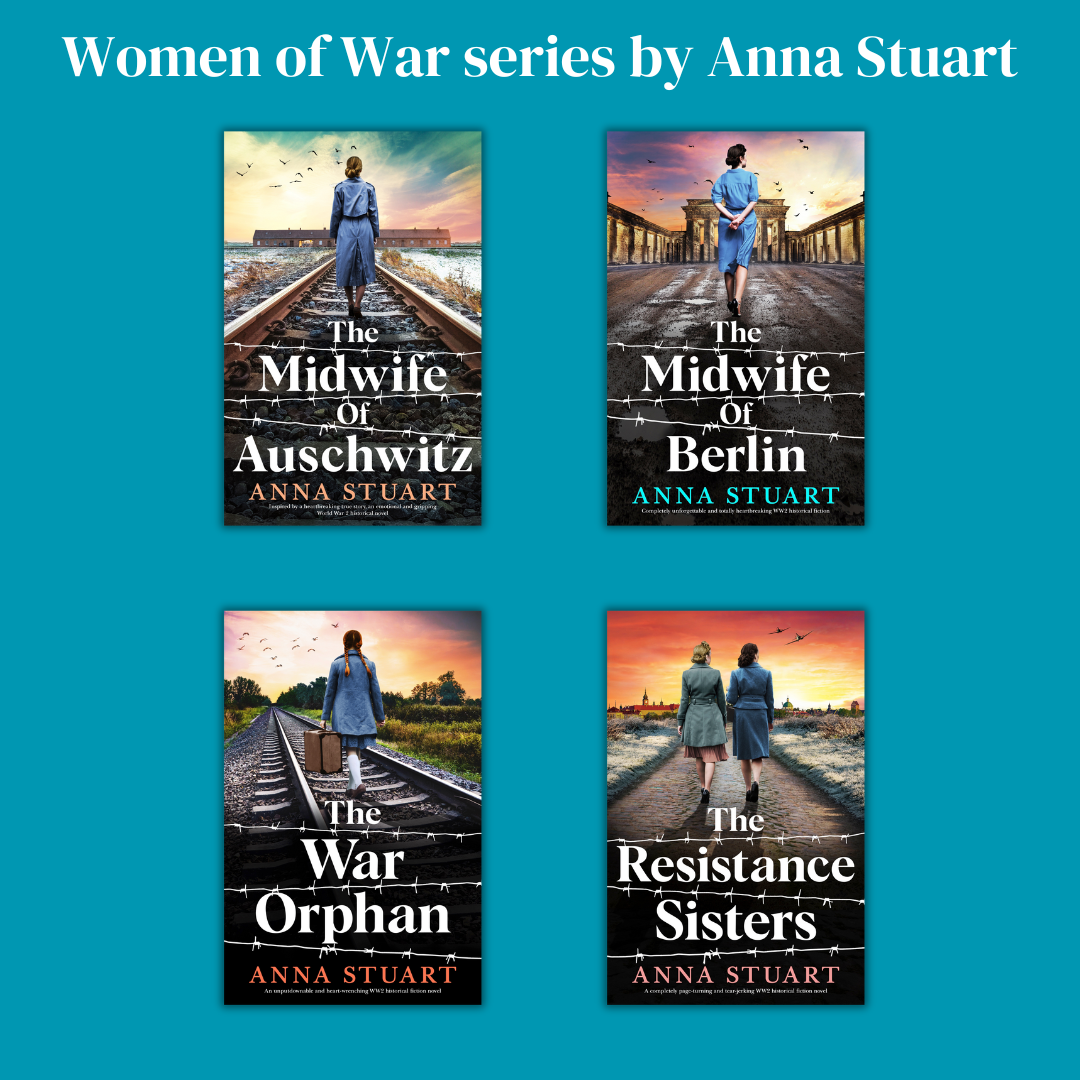
The emotional impact of the story is profound. How do you approach writing scenes that are particularly heart-wrenching or intense?
I’m not honestly sure. I’m a planner so I spend a lot of time researching, thinking about my characters and plotting their story arcs. By the time I sit down to write the novel, therefore, they feel quite vivid in my head. I try and write the harder scenes from as deep under their skin as possible, feeling it alongside them, which I hope makes them believable for readers.
Can you share any insights or teasers about upcoming books in the Women of War series or other projects you are working on?
There is going to be at least one more book in the Women of War series – The Resistance Sisters comes out this August and follows the lives of three sisters caught up in the Warsaw Uprising. This was a very brave and tough resistance movement in Poland’s capital that resulted in effectively a siege of sixty days, under constant attack.
Inspired by Rome and Paris being liberated by the Allies, the Warsawians rose up when called upon to help ease the passage of the Russian Army into Warsaw. However, the Russians halted their advance, leaving the citizens at the mercy of a brutal German fight-back. It’s a fascinating subject in its own right but also fits beautifully into this series because Ana’s husband and son escaped to Warsaw when she and her other two sons were captured (based on the true story of Stanislawa’s family), and Tasha is also from Warsaw so those characters both feature in the novel, tying the stories of all the books together in the way that so many real lives were tied together by the horrors of war across Europe.
What draws you to write historical fiction, particularly about lesser-known aspects of World War II?
I’ve always been fascinated by events that happened before our time. I’m not great at keeping up with current affairs and I think it’s mainly because we don’t yet know how they are going to end, whereas what I enjoy is the shape of events – how one thing led to another, with the tantalizing question of ‘what if’ small elements had gone another way. I also think that, in the civilised, easy way of life that we largely have now, especially in Western Europe, we can lose sight of the hardships that people went through and I enjoy trying to bring those to readers to show what our forebears went through.
I was resistant to writing about WW2 at first, thinking that I didn’t have much to add to the wealth of wonderful storytelling out there already, but when you start digging around there are so many amazing stories we don’t yet know much about that I knew I’d found an inspiring period. I always like to write about the women as their lives are, even now, less documented (tending to involve less guns but more complex domestic courage), and I love to find a niche to explore.
Are there any historical events or periods you haven't explored yet but are interested in writing about in the future?
Many! There’s a character in The Midwife of Auschwitz called Naomi who is a Greek Jew from Salonika and the story of what those Greek Jews went through is fascinating and might, one day, form another book in this series… I keep wondering what I will write if I run out of WW2 stories but every day of research seems to turn up another one, so I don’t think that will be any time soon.
That said, I do also write medieval fiction as Joanna Courtney with my new novel, Salome - experiencing the time of Christ through the eyes of a young member of the Herod family - coming out this summer.
Where can our readers discover more of your work or interact with you?
I’m on Instagram as @annastuartauthor and have a website www.annastuartbooks.com. I love to hear from readers so do get in touch.
